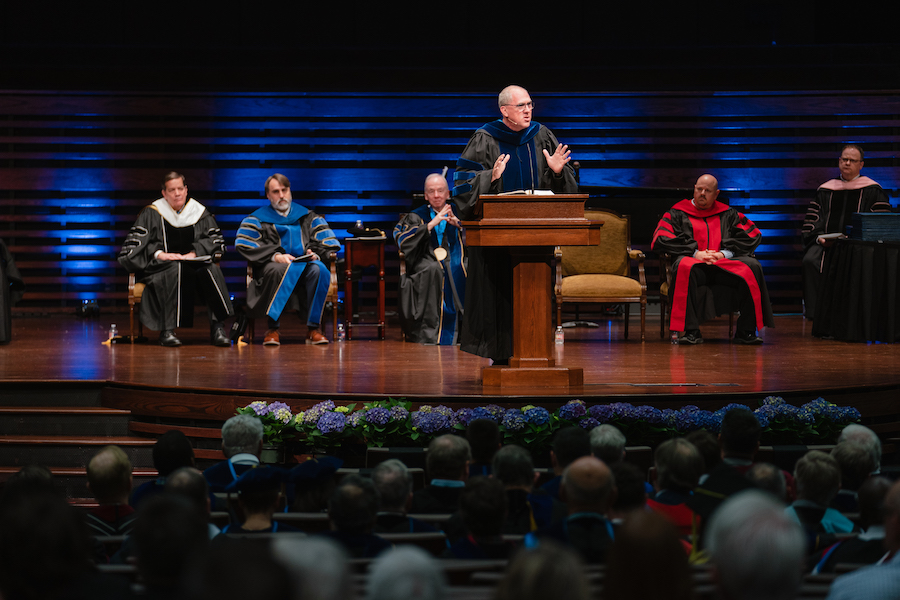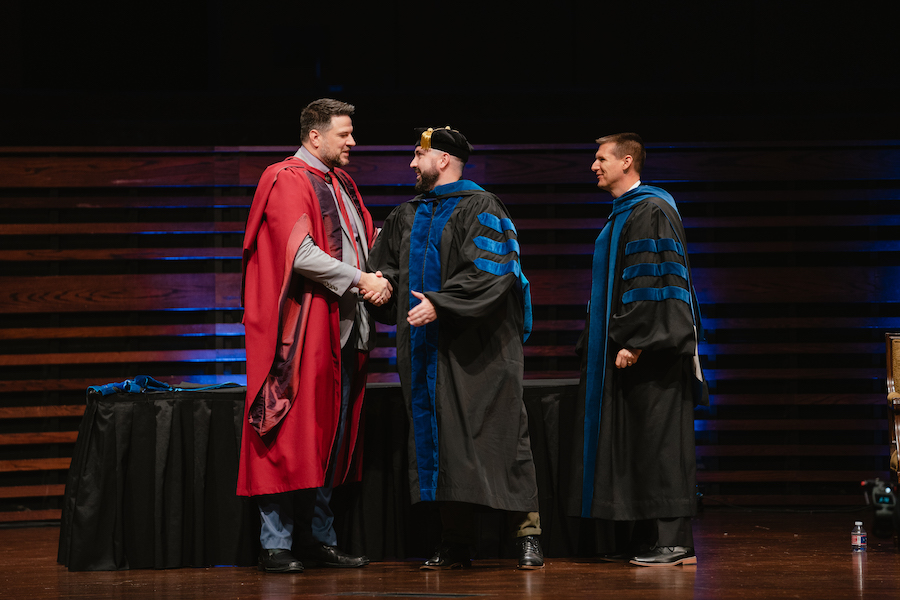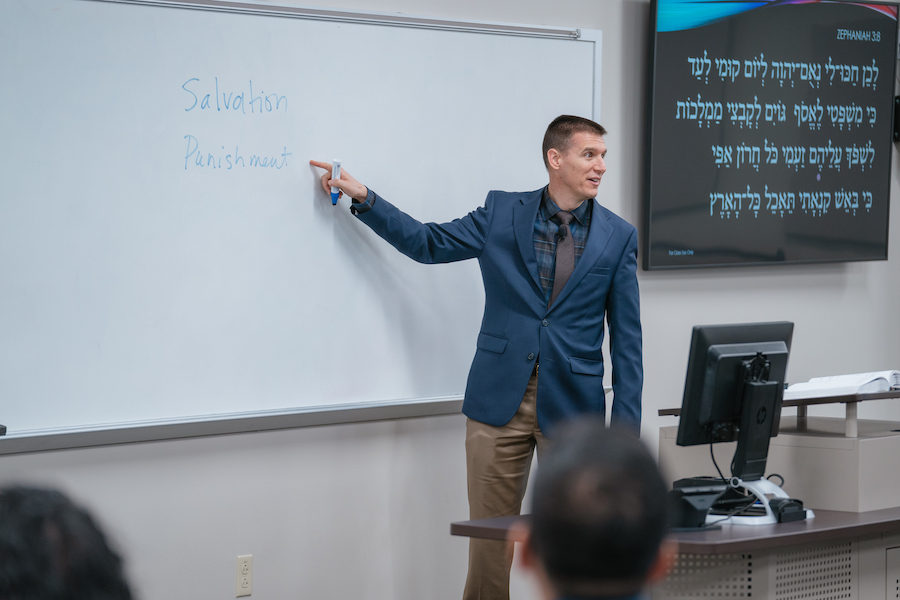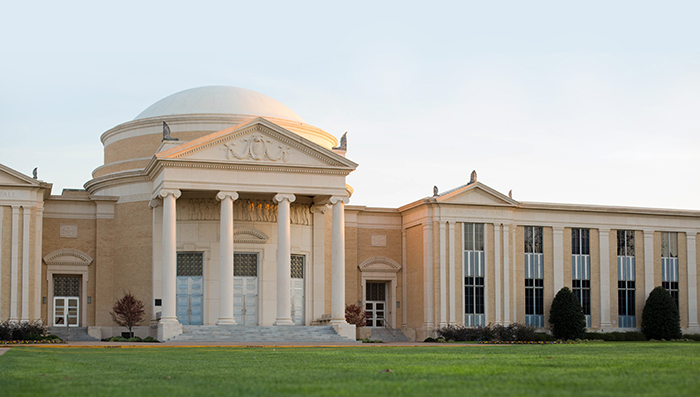Sending Church Summit focuses on Great Commission
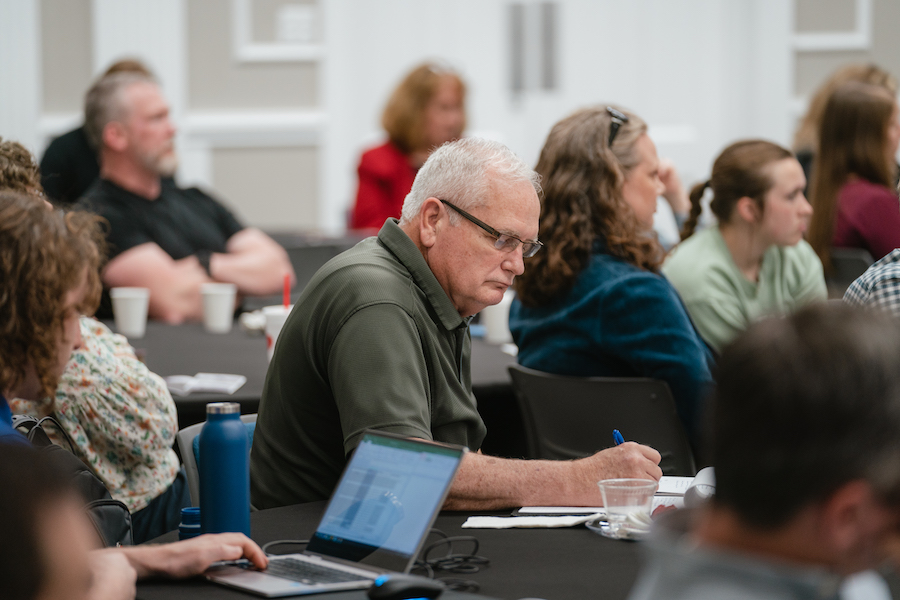
The Great Commission is a mandate, or command, meaning there is no option. It’s “the marching orders of the church,” said Carroll Marr, senior pastor at Southcliff Church in Fort Worth.
Marr was the opening speaker of the second Sending Church Summit, hosted March 4 by the Southwestern Baptist Theological Seminary’s World Missions Center (WMC). The conference focused on equipping churches to spread the Gospel to all nations.
While Jesus in Matthew 28:18-20 told His disciples to go to the most remote parts of the world, He didn’t tell them how to do it because “there’s no wrong way [to do it] as long as it gets done,” Marr said. He encouraged churches to become a “going” church.
“I believe a ‘going’ church is a ‘sending’ church,” he said.
Marr said his church has created a culture of expectation, opportunity, and celebration when it comes to missions. When people join his church, he said, one of the questions they’re asked is, “‘Is your passport current?’ We expect them to go.” The church also creates an opportunity for all age groups to go on a mission trip, and they celebrate whenever someone goes.
Marr encouraged attendees to figure out what works best for them in making their church a sending church, but the key, he said, is “Do it.”

During the March 4 Sending Church Summit sponsored by the World Missions Center at Southwestern Baptist Theological Seminary, attendees heard from a panel of current and former International Mission Board (IMB) missionaries regarding what missionaries wished their sending churches knew. Micah Englehart (left), associate director of Student Life at Southwestern, facilitated the panel that included Chandler and Kelly Snyder, Mackenzie Norman, and Michael Copeland.
Morning breakout sessions of the conference covered a variety of topics, including taking your church on a mission trip, sending internationals overseas, involving the church in refugee ministry, and “Being, Not Doing,” with the Woman’s Missionary Union of Texas.
During the “Reaching the World Across the Street” breakout session, Stu Cocanougher, strategy pastor with Southcliff Church, said while churches are excited about international missions, ministry to internationals living in the United States often takes a back seat.
Cocanougher cited a 2021 population count that showed 46.2 million immigrants living in the U.S., a figure higher than the population of some nations, and said churches need to find ways to reach these people.
When churches start developing programs for immigrants, some of the stories about what’s happening in foreign mission fields start happening in their own church, he said.
The afternoon session of the conference featured a panel discussion on what missionaries wished their sending churches knew. Micah Englehart, associate director of Student Life at Southwestern Seminary, led the discussion with panelists Michael Copeland, associate director of the WMC; Mackenzie Norman, a student and NextGen Mobilizer with the International Mission Board (IMB); and students Chandler and Kelli Snyder. Chandler Snyder also is vice president for enrollment and student services at Southwestern Seminary and an instructor of missions in the Roy J. Fish School of Evangelism and Missions.
Kelli Snyder said she wished churches understood that “it’s not a mission trip for us; it’s our entire life.” She added that people assume that, because they’re Americans, it’s easy to fall back into a routine when they return to the United States, but it’s not. She said she’d like to see more support and counseling for returning families.
Chandler Snyder said he wished their sending church knew that “we’re still a part of you.” He wanted more accountability with the church but added that he wished he had been more articulate in telling them what his family needed.
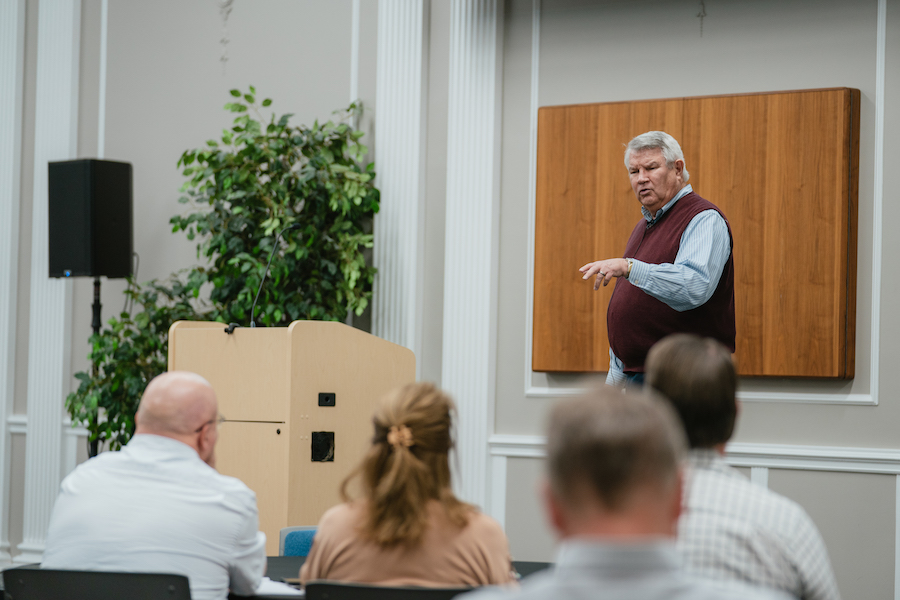
John Mark Terry, an affiliate professor of missions and evangelism at Southwestern Seminary, concluded the March 4 Sending Church Summit at the Fort Worth-based institution with a plenary session address that focused on developing a missions strategy for a church.
Copeland said the only time he felt as though the church knew what missionaries go through was during the COVID-19 pandemic, when people were unable to see their families and things were shut down. Norman said she appreciated a group of women who called her every week on her missionary journey, adding that they prayed with her and talked for hours. All the missionaries said they appreciated the care packages they received that contained favorite snacks from home and art supplies for the Snyders’ children.
Afternoon breakout sessions focused on church mission trips, shepherding the sent, and an IMB session on mobilizing every generation led by Norman. She noted that 59% of the world’s population is considered to be unreached and said the IMB’s overall mission is to serve Baptists in fulfilling the Great Commission.
The Gospel must reach all nations, but also must reach all generations, she said. While there’s no “hard science” behind the generational divide, she said, there are characteristics of different generations that make some individuals a better fit for some service than others. She then outlined the different levels of the IMB mission strategy.
The conference concluded with a talk on developing a missions strategy for a church, led by John Mark Terry, an affiliate professor of missions and evangelism at Southwestern Seminary.
Reasons for developing a strategy include achieving a unity of purpose, being a good steward of a church’s resources, and focusing on the church’s efforts, he said. The sad truth, he said, is that “your church can’t be all things to all people,” and a missions leader, will end up saying no to a lot of good things.
Terry outlined the steps to a mission strategy, but emphasized that the key word in any strategy is multiplication. Any strategy used should serve to multiply disciples and churches, he said.
